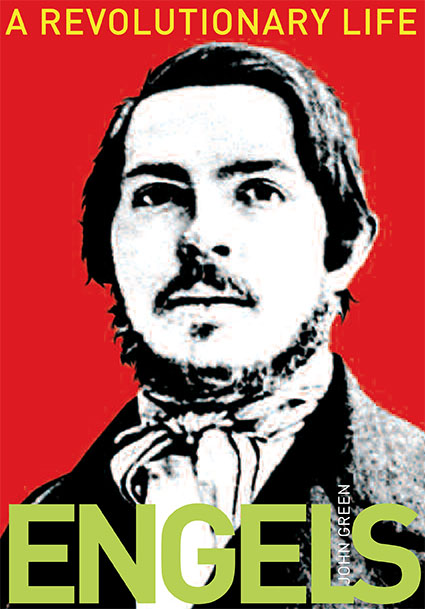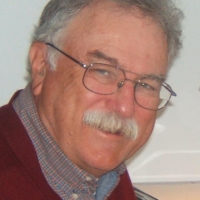
Book Review
“Engels: A Revolutionary Life”
By John Green
Artery Publications, London, 2008
347 pages, order paperback from publisher, Kindle edition $15 at Amazon.com
Recent public opinion polls reveal surprisingly strong positive feelings for socialism and growing disgust and anger at capitalism’s insatiable profit greed in the United States. A 2010 Gallup poll, for example, found that 37 percent of Americans believe socialism is superior to capitalism.
With the corporate ultra-right waging open class warfare against working people, is it any wonder? Wages, health care, pensions and job security are under brutal attack from the corporate oligarchy. It is only logical that people searching for answers would be curious about the founders of the worldwide socialist movement, Karl Marx and Friedrich Engels.
John Green’s biography of Engels should be required reading for these radicalized masses. He brings Engels alive, a foe of all dogma and ossified, empty slogans. Green traces Engels’ ideas as they developed with great speed in response to the class struggle erupting around him. He studied these movements but also joined in the struggles. When the Civil War erupted in the U.S., Engels devoted one day each week to reading the bag of mail that arrived from the U.S. and then wrote a series of columns in Horace Greeley’s New York Tribune on the urgent task of abolishing slavery.
The book has romance, adventure, a touch of intrigue, worthy in my opinion of being turned into one of those “Upstairs/Downstairs” BBC Masterpiece dramas we all love to watch on PBS. At the center of it all is Engels, the tall, dashing son of a German manufacturer sent to Manchester, England, to manage the family’s textile mill.
Engels joins the stock exchange, attends soirees and balls. An excellent equestrian, he joins in “riding to the hounds” and is widely admired for his well-bred horses. He joins the Albert Club, named for Prince Albert, Queen Victoria’s consort. Green portrays Engels as a charming, witty conversationalist who blended seamlessly into Victorian England’s social scene.
Yet it is a double life which Engels describes as “purgatory.”
Unknown to his wealthy peers, Engels spends every spare minute with his closest friend and confidante, Karl Marx. Engels is the financial angel, sending cash as generously as he can to support the impoverished Marx family.
Engels doesn’t even live in the mansion he has leased to provide a façade of upper class respectability. Instead, he lives in a cottage he has rented on the outskirts of town with his lover, Mary Burns, a fiery working class Irish woman and patriot battling British colonial rule over Ireland.
He befriends leaders of Britain’s Chartist movement, the insurgent British labor movement, followers of the utopian socialist Robert Owen, and progressive-minded scientists.
What a shock it would be to Engels’ fellow industrialists to learn that he co-authors the “Communist Manifesto.” Engels also writes “The Condition of the Working Class in England,” much of it based on his intimate knowledge of the exploitation of British workers in the textile industry.
He contributes hugely to Marx’s “Capital” and after Marx’s death will edit the three-volume masterwork revealing the secret of capitalist exploitation: surplus value.
He and Marx organize the International Workingmen’s Association, foundation for the worldwide working class movement and communist parties in scores of countries around the world.
In 1847-1848, a democratic revolution erupts in Germany. Engels returns to his homeland. As the Prussian Army closes in on the Rhineland, Engels leads a cavalry patrol that discovers an arms depot and distributes the weapons to the workers. Alas, the 1848 Revolution is crushed and Engels barely escapes into Switzerland. Green compares Engels’ role as a guerrilla fighter to that of Che Guevara, Fidel Castro’s comrade-in-arms.
Green himself is a committed Marxist. For 22 years, he worked as a London-based filmmaker for the German Democratic Republic, flying into fascist Chile to film the resistance to Gen. Augusto Pinochet, to El Salvador where his crew filmed D’Aubisson’s fascist death squad, and to Namibia to cover the SWAPO liberation movement.
I got to know Green and his fellow filmmakers on their trips to the U.S., helping them make contacts for films about our country during the 1980s. He chronicles all these daring exploits in his memoir, “Red Reporter: Covert Correspondent For East Germany” (also published by Artery Publications).
After the fall of the GDR, Green became a national leader of UNISON, Britain’s public employee union. (In a Facebook message to me, he expressed his joy at the struggle of Wisconsin public employees which he and his wife Bruni are “following avidly.”)
Green describes Engels’ impatience with ultra-leftism as well as all forms of class collaborationism. Engels and Marx steered the working class movement toward the mainstream, struggling against sectarian tactics that isolate the movement from the broad masses. They reached out to allies – President Abraham Lincoln, for example. As the working class movement grew stronger, and workers won voting rights and elected workers to parliaments, Engels embraced the possibility of a peaceful transition to socialism.
In the final chapter, “The Legacy,” Green expresses his faith that millions will turn toward Marx and Engels. “We need to comprehend change,” he writes, “to grasp the ways in which it can be managed so that we can mould our history rather than be steamrollered by it, and offering a key to such an understanding is the true legacy of Engels and of Marx.”
Photo: Cover of “Engels: A Revolutionary Life.”












Comments